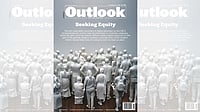US has held a AAA credit rating from all three major credit rating agencies (Fitch, Moody's, and S&P) for most of its history. However, with the latest downgrade in US credit rating, it is now on par with countries like Canada and Germany.
To put things in perspective, a AAA credit rating is like getting an A+ in school, A AA+ rating is like getting an A, whereas A CCC rating is like getting a D. Fitch Ratings downgraded US long-term debt late on Tuesday from AAA to AA+, earlier this tuesday.
Flitch cited the country's high and growing debt burden, the political gridlock in Washington, and waning confidence in the US government's ability to manage its finances, as primary reasons for the downgrade. The last time the US rating took a hit was in 2011. It was the first time that the US had been downgraded since 1979. The downgrade in 2011 was due to the financial crisis that had occurred in 2008. The downgrade in 2023 is due to a different set of factors, but it is still a sign of the challenges that the US is facing.
The United States has long been considered one of the most creditworthy countries in the world. It has a strong track record of paying its debts full and on time, and has never defaulted on its debt. Hence, the latest downgrade of the US credit rating is a clear warning sign and demands the country 's immediate attention to its debt problem.
The downgrade of the US credit rating could lead to higher interest rates and slow economic growth, as investors may become more risk-averse and demand higher yields on US government bonds. The downgrade could also lead to higher deficits and exert pressure on the government to cut spending or raise taxes. Moreover, the timing of it is what makes it so troublesome - with war in Ukraine and rising inflation.


























